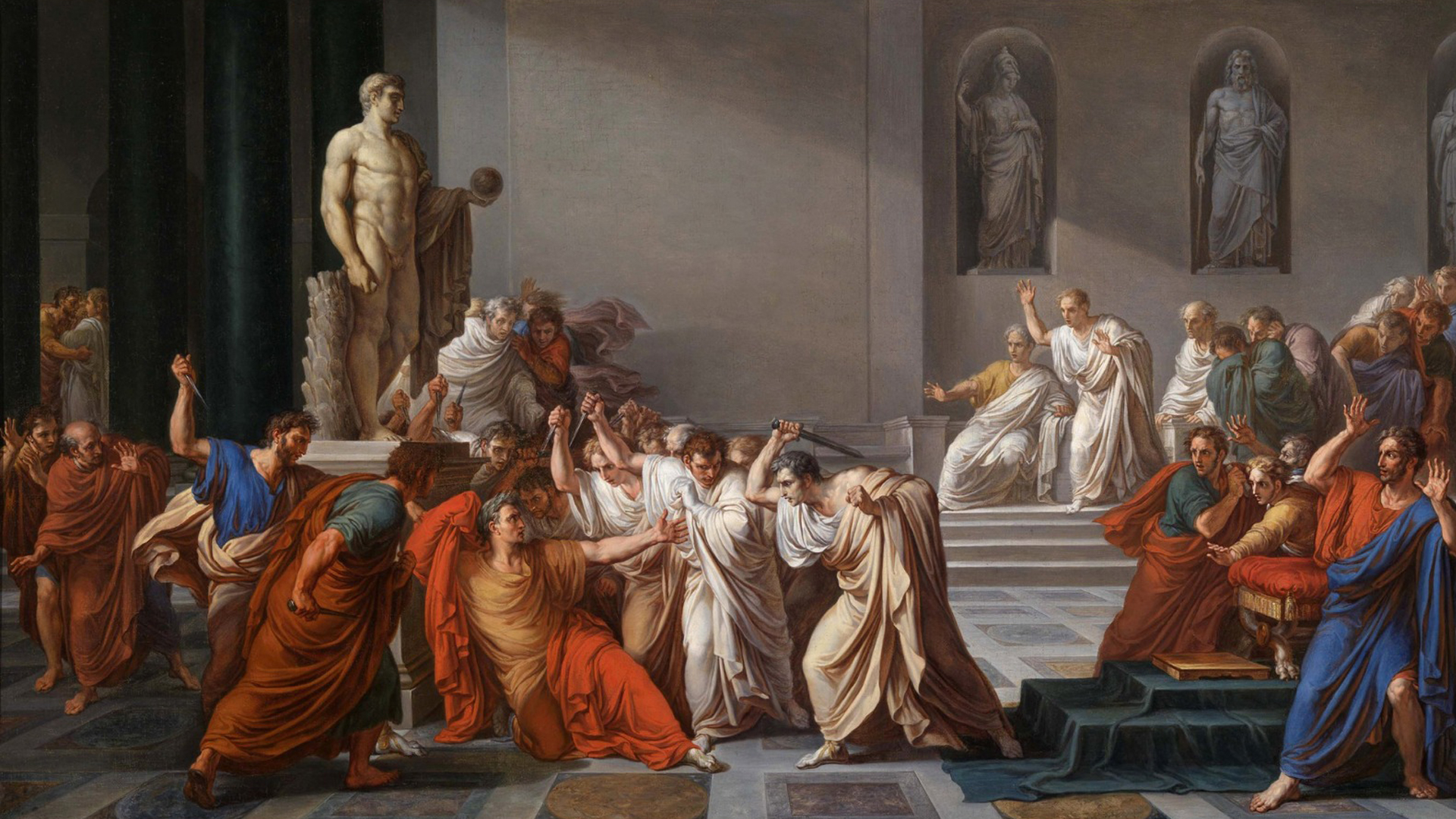On this day, 2,067 years ago in 44 B.C., Gaius Julius Caesar was assassinated by members of the Roman senate. Stabbed 23 times, the dictator was murdered in a plot that conspirators believed would prevent Caesar from becoming King of Rome and destroying the Roman Republic, according to JSTOR Daily.
The historic moment has been crystallized most prominently in William Shakespeare’s 1599 play “Julius Caesar” in which the foreboding phrase “beware the Ides of March” are first uttered. These words, delivered from a soothsayer to the unsuspecting Julius Caesar, are among the most popular of all of Shakespeare’s plays. It is unlikely that the British playwright knew that phrase would carry on through the ages and give the date of March 15 a negative connotation.

While March 15 may always be attached to murder and betrayal, the “ides” are actually pretty harmless. In fact, it was a word used in Ancient Rome to track time, according to History.com.
As the Ancient Romans were primarily an agrarian society, they tracked time via the lunar phases. They used words like “kalends,” “nones,” and “ides” to reference dates in relation to the moon. Kalends was the beginning of the month, the Ides the middle, and the Nones between the two, according to Britannica. The Kalends was referenced as day 1, while the Ides usually referred to the first new moon of any given month, which tended to fall between the 13th and 15th, while the Nones fell on day 7. According to History.com, the Ides of March once represented the new year, and was a time for celebration.

The Roman calendar was undoubtedly confusing, so when Caesar beat Pompey the Great in 48 BC and rose to undisputed power, he made adjustments. According to JSTOR Daily, he extended the year 46 BC to 445 days. On January 1, 45 BC, Caesar’s new Julian calendar became the standard for the Republic, the Empire, and the West until 1562 when Pope Gregory tweaked it for leap years, according to JSTOR Daily.
So while the Ides of March today remind us of Caesar’s assassination at the hands of his fellow politicians, the ides were really just an ancient marker to reference specific dates during the lunar phases. There’s no need to “beware” them. If anything, March 15 can be used as a time to celebrate and rejoice in something new, just like the Ancient Romans did.
Asia London Palomba
Asia London Palomba is a trilingual freelance journalist from Rome, Italy. In the past, her work on culture, travel, and history has been published in The Boston Globe, Atlas Obscura, The Christian Science Monitor, and Grub Street, New York Magazine's food section. In her free time, Asia enjoys traveling home to Italy to spend time with family and friends, drinking Hugo Spritzes, and making her nonna's homemade cavatelli.

